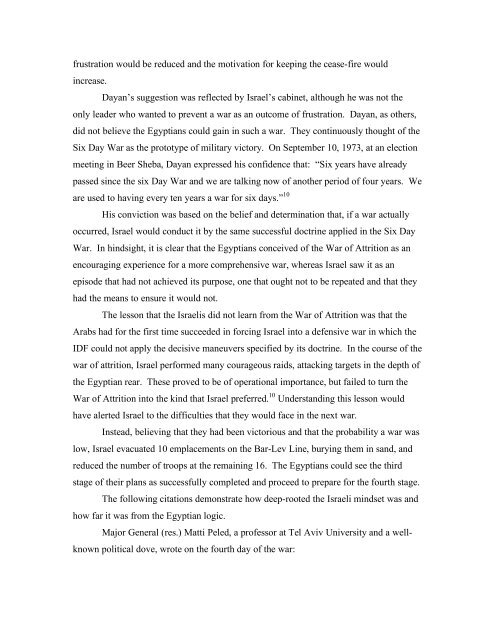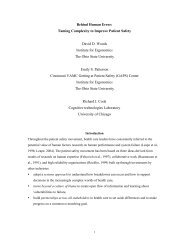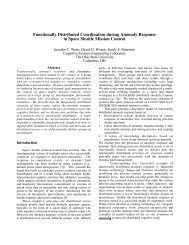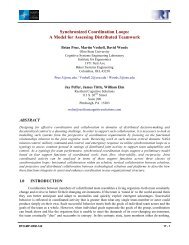Fundamental Surprises Zvi Lanir Decision Research 1201 Oak ...
Fundamental Surprises Zvi Lanir Decision Research 1201 Oak ...
Fundamental Surprises Zvi Lanir Decision Research 1201 Oak ...
- No tags were found...
You also want an ePaper? Increase the reach of your titles
YUMPU automatically turns print PDFs into web optimized ePapers that Google loves.
frustration would be reduced and the motivation for keeping the cease-fire would<br />
increase.<br />
Dayan’s suggestion was reflected by Israel’s cabinet, although he was not the<br />
only leader who wanted to prevent a war as an outcome of frustration. Dayan, as others,<br />
did not believe the Egyptians could gain in such a war. They continuously thought of the<br />
Six Day War as the prototype of military victory. On September 10, 1973, at an election<br />
meeting in Beer Sheba, Dayan expressed his confidence that: “Six years have already<br />
passed since the six Day War and we are talking now of another period of four years. We<br />
are used to having every ten years a war for six days.” 10<br />
His conviction was based on the belief and determination that, if a war actually<br />
occurred, Israel would conduct it by the same successful doctrine applied in the Six Day<br />
War. In hindsight, it is clear that the Egyptians conceived of the War of Attrition as an<br />
encouraging experience for a more comprehensive war, whereas Israel saw it as an<br />
episode that had not achieved its purpose, one that ought not to be repeated and that they<br />
had the means to ensure it would not.<br />
The lesson that the Israelis did not learn from the War of Attrition was that the<br />
Arabs had for the first time succeeded in forcing Israel into a defensive war in which the<br />
IDF could not apply the decisive maneuvers specified by its doctrine. In the course of the<br />
war of attrition, Israel performed many courageous raids, attacking targets in the depth of<br />
the Egyptian rear. These proved to be of operational importance, but failed to turn the<br />
War of Attrition into the kind that Israel preferred. 10 Understanding this lesson would<br />
have alerted Israel to the difficulties that they would face in the next war.<br />
Instead, believing that they had been victorious and that the probability a war was<br />
low, Israel evacuated 10 emplacements on the Bar-Lev Line, burying them in sand, and<br />
reduced the number of troops at the remaining 16. The Egyptians could see the third<br />
stage of their plans as successfully completed and proceed to prepare for the fourth stage.<br />
The following citations demonstrate how deep-rooted the Israeli mindset was and<br />
how far it was from the Egyptian logic.<br />
Major General (res.) Matti Peled, a professor at Tel Aviv University and a wellknown<br />
political dove, wrote on the fourth day of the war:









